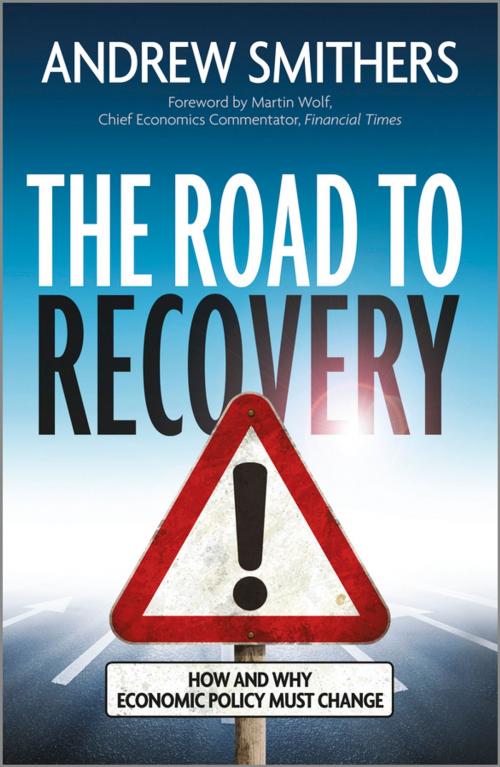The Road to Recovery
How and Why Economic Policy Must Change
Business & Finance, Finance & Investing, Finance| Author: | Andrew Smithers | ISBN: | 9781118515693 |
| Publisher: | Wiley | Publication: | August 16, 2013 |
| Imprint: | Wiley | Language: | English |
| Author: | Andrew Smithers |
| ISBN: | 9781118515693 |
| Publisher: | Wiley |
| Publication: | August 16, 2013 |
| Imprint: | Wiley |
| Language: | English |
Renowned economist Andrew Smithers offers prescriptive advice and economic theory on avoiding the next financial crisis
In The Road to Recovery, Andrew Smithers—one of a handful of respected economists to have accurately predicted the most recent global financial crisis—argues that the neoclassical consensus governing global economic decision-making must be revised in order to avoid the next financial collapse. He argues that the current low interest rates and budget deficits have prevented the recession becoming a depression but that those policies cannot be continuously repeated and a new consensus for action must be found. He offers practical guidance on reducing government, household, and business debt; changing the economic incentives for the management class that currently inhibit long-term growth; and rebalancing national economies both internally and externally. Further, he explains how central bankers must broaden the economic theories that guide their decisions to include the major factors of debt and asset prices.
- Offers practical, real-world economic policies for restructuring and rebalancing the global economic system
- Presents a modern economic theory for preventing the next collapse
- Ideal for economists, investors, fund managers, and central bankers
- Written by an economist described by the legendary Barton Biggs as "one of the five best, most dispassionate, erudite analysts in the world"
As the global economy continues the long climb out of recession, it's imperative that central bankers and other economic decision-makers not repeat the mistakes of the past. The Road to Recovery offers prescriptive guidance on redesigning an economic system that is healthy, stable, and beneficial to all.
Renowned economist Andrew Smithers offers prescriptive advice and economic theory on avoiding the next financial crisis
In The Road to Recovery, Andrew Smithers—one of a handful of respected economists to have accurately predicted the most recent global financial crisis—argues that the neoclassical consensus governing global economic decision-making must be revised in order to avoid the next financial collapse. He argues that the current low interest rates and budget deficits have prevented the recession becoming a depression but that those policies cannot be continuously repeated and a new consensus for action must be found. He offers practical guidance on reducing government, household, and business debt; changing the economic incentives for the management class that currently inhibit long-term growth; and rebalancing national economies both internally and externally. Further, he explains how central bankers must broaden the economic theories that guide their decisions to include the major factors of debt and asset prices.
- Offers practical, real-world economic policies for restructuring and rebalancing the global economic system
- Presents a modern economic theory for preventing the next collapse
- Ideal for economists, investors, fund managers, and central bankers
- Written by an economist described by the legendary Barton Biggs as "one of the five best, most dispassionate, erudite analysts in the world"
As the global economy continues the long climb out of recession, it's imperative that central bankers and other economic decision-makers not repeat the mistakes of the past. The Road to Recovery offers prescriptive guidance on redesigning an economic system that is healthy, stable, and beneficial to all.















